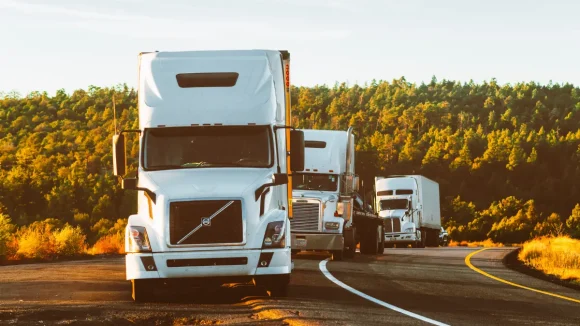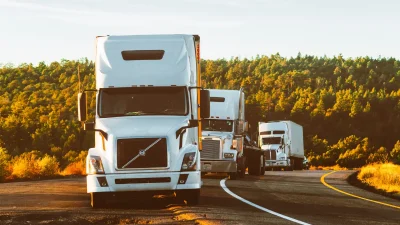The trucking industry is synonymous with the ceaseless movement of goods, bridging the gaps between bustling urban hubs and serene rural areas. However, the growing number of 18-wheelers on the road also brings a concerning rise in accidents.
With more trucks on the highways, accident rates have unfortunately revved up too, often with dire repercussions. Hope emerges as technology brings innovative avenues to mitigate trucking accidents.
Advanced Driver Assistance Systems (ADAS)
These are systems developed for safety and better driving, with features to avoid collisions. Most of these systems use cameras and sensors to monitor the environment around the vehicle and respond accordingly.
Some of the innovative features include:
- ‘Lane Departure Warnings’ that alert drivers if the truck veers off its lane,
- ‘Forward Collision Warnings’ to forewarn about looming obstacles and
- ‘Automatic Emergency Braking’ for those critical moments when human reflexes might fall short.
Telematics and management
Telematics establishes a communication channel between fleet managers and trucks by forging a real-time link to relay crucial data such as location, speed, and fuel efficiency. This data is crucial for fleet managers to make informed decisions.
One key feature is the analysis of driver behavior to address aggressive driving and provide insights into efficient vehicle operation. For instance, the data will reveal harsh braking, rapid acceleration, or speeding.
Route optimization is another aspect of telematics technology which is used to optimize the routes trucks take. If there are traffic jams or hazardous road conditions, the system can suggest a reroute. This reduces the time taken to reach a destination while also keeping drivers safe.
Stability control systems
These systems guard against rollovers – a common peril given the trucks’ size – by constantly monitoring speed, steering input, and lateral acceleration. By monitoring and adjusting brake application and engine power, they also ensure trucks remain upright.
If instability is detected, the system automatically takes corrective actions, like applying brakes to certain wheels to prevent a rollover.
ALSO READ: Generative AI used in battery development
Blind spot busters
Due to their massive size and length, 18-wheelers have larger blind spots compared to typical vehicles. Thanks to blind spot detection systems, drivers are alerted to lurking vehicles, particularly during lane shifts.
Using sensors (usually radar or cameras), the system alerts drivers through visual or auditory signals when a vehicle enters a blind spot. This significantly enhances safety when threats aren’t visible through mirrors or other conventional means.
Platooning technology
Meanwhile, platooning technology synchronizes a convoy of trucks, establishing a digital link between them to harmonize speed and direction. This not only conserves fuel but also minimizes human error.
These digital marvels help reduce accidents in the trucking industry. Coupled with adept driver training, meticulous vehicle upkeep, and staunch adherence to safety norms, the roads are a much safer place.
About the author
Cheryl has contributed to various international publications, with a fervor for data and technology. She explores the intersection of emerging tech trends with logistics, focusing on how digital innovations are reshaping industries on a global scale. When she's not dissecting the latest developments in AI-driven innovation and digital solutions, Cheryl can be found gaming, kickboxing, or navigating the novel niches of consumer gadgetry.











